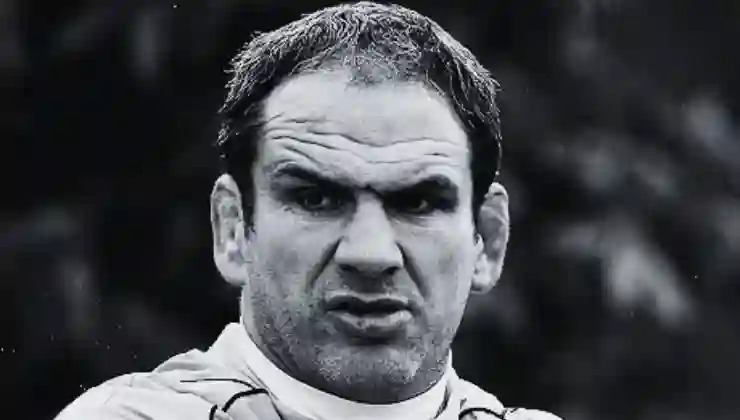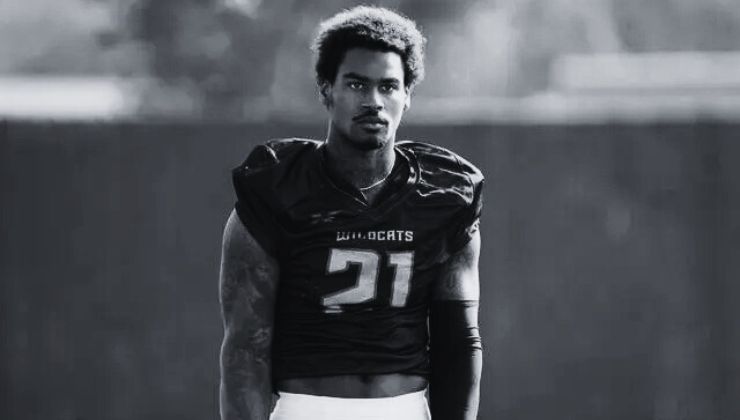
In the annals of English sports, few figures command as much respect as Martin Johnson. Known for his towering physical presence, unyielding leadership, and uncompromising discipline, Johnson became the embodiment of English rugby’s grit and glory. His journey from a small-town athlete to lifting the 2003 Rugby World Cup as captain of England is not just a sports story — it’s a masterclass in leadership, resilience, and human psychology under pressure.
Beyond the tries and tackles, Martin Johnson represents something deeper: the fusion of humility and dominance. His career reveals how true greatness often lies in the subtle art of control — both over oneself and one’s team — in moments of chaos.
Early Life and Rugby Beginnings
Growing Up in Leicester
Born on March 9, 1970, in Solihull, England, Martin Osborne Johnson grew up in the rugby heartland of Leicester. From a young age, his imposing frame and competitive streak hinted at a natural leader in the making. Rugby wasn’t just a sport in his world — it was a culture, a language spoken through bruises and camaraderie.
He joined the Leicester Tigers’ youth system, where he quickly caught the eye of coaches for his composure and raw strength. But his rise wasn’t instant. Johnson spent years developing the mental and physical endurance that would later define him.
Learning the Game in New Zealand
A pivotal chapter in Martin Johnson’s development came when he traveled to New Zealand as a teenager. There, he played for King Country and absorbed the Kiwi philosophy of rugby — fluid, fast, and deeply respectful of the sport’s traditions. This experience broadened his understanding, blending English discipline with New Zealand flair. It would later make him one of the most balanced locks in world rugby.
Rise to Prominence: Leicester Tigers and England
Club Success with Leicester
Johnson’s return to the Leicester Tigers marked the start of a golden era. As captain, he led the team to four consecutive Premiership titles and two Heineken Cup victories. What stood out wasn’t just his performance — it was how he elevated everyone around him.
Players often described Johnson as a “silent motivator.” He didn’t shout or grandstand; instead, he led through presence. A glance from him could steady a rookie or silence a locker room. In an age obsessed with charisma, Martin Johnson proved that true leadership often whispers rather than roars.
The England Call-Up
His England debut came in 1993, and within a few seasons, Johnson became the cornerstone of the national team’s forward pack. His ability to read line-outs, dominate scrums, and command the field made him indispensable. By 1999, he was appointed captain — a move that would shape rugby history.
The 2003 Rugby World Cup: The Pinnacle of Glory
Building Toward Greatness
By the early 2000s, England had assembled one of its strongest squads ever — with players like Jonny Wilkinson, Lawrence Dallaglio, and Jason Robinson. Yet even among such talent, Martin Johnson was the heartbeat.
Coach Clive Woodward often referred to him as “the enforcer and the conscience” of the team. Johnson set the tone — disciplined training, tactical precision, and emotional control. His leadership was less about speeches and more about setting an example.
The Defining Moment
On November 22, 2003, in Sydney, England faced Australia in the Rugby World Cup final. The game was brutal, tense, and deadlocked until the final moments. Johnson’s calm decision-making and relentless drive in extra time set up the platform for Wilkinson’s iconic drop goal — a kick that secured England’s first-ever World Cup title.
In that moment, Martin Johnson became more than a captain; he became a national symbol of composure under pressure.
Leadership Philosophy: Beyond the Field
Leading by Example
Johnson’s leadership style has been studied across disciplines — from business schools to military academies. His philosophy was simple: never ask others to do what you won’t do yourself. He played through injuries, never blamed teammates, and accepted responsibility in defeat as readily as he celebrated victory.
He once said, “Leadership isn’t about shouting the loudest. It’s about making the right call when everyone else is losing their heads.” That ethos defined not only his rugby but his life.
Managing Pressure
Pressure reveals character, and Martin Johnson thrived in it. Teammates recount how, even in the tensest moments, he seemed unnervingly calm. Psychologists often point to his ability to regulate emotions — a skill that allowed him to think clearly in chaos.
This mental toughness wasn’t innate; it was trained. Johnson approached high-pressure games like military campaigns — analyzing the opposition, planning contingencies, and rehearsing discipline until it became instinct.
From Player to Manager: The Challenges of Transition
England Manager (2008–2011)
After retirement, Martin Johnson stepped into management as England’s head coach in 2008. Expectations were astronomical, but coaching proved a different challenge. Leading peers on the field was one thing; managing egos and systems from the sidelines was another.
While his tenure had highs — like the 2011 Six Nations Championship — it also faced setbacks, notably during the 2011 Rugby World Cup. Yet, even in criticism, Johnson’s integrity stood out. He refused to deflect blame or indulge in media battles, maintaining the same stoic dignity that marked his playing days.
Lessons Learned
His coaching career taught a broader truth: leadership isn’t a one-size-fits-all formula. What worked in the locker room didn’t always translate to the boardroom. Johnson’s experience reminds us that adaptability is as vital as discipline — even for legends.
Legacy: The Man Who Set the Standard
Influence on Modern Rugby
Even years after his retirement, Martin Johnson shadow looms large over English rugby. His approach to preparation, fitness, and professionalism redefined how players and coaches think about leadership.
Many of today’s captains — from Owen Farrell to Courtney Lawes — cite Johnson as an influence. His balance of respect, toughness, and humility became the template for modern rugby leadership.
The Human Side Martin Johnson
Off the field, Johnson remains private, devoted to his family, and rarely seeks the spotlight. Yet, when he speaks — whether on TV or at charity events — his insights carry weight. He talks less about winning and more about teamwork, accountability, and respect — timeless values that outlive the scoreboard.
The Power of Composed Leadership
The story of Martin Johnson is not just about rugby. It’s about how discipline, empathy, and quiet strength can inspire transformation in any field. From his early days in Leicester to leading England to world glory, Johnson showed that greatness doesn’t require glamour — just grit and grace.
In a world often drawn to loud leaders and fleeting fame, Martin Johnson stands as a reminder that true leadership is built on steadiness, not noise. His legacy continues to echo through the game and beyond — a timeless lesson in how to lead with purpose, humility, and an unbreakable will.






